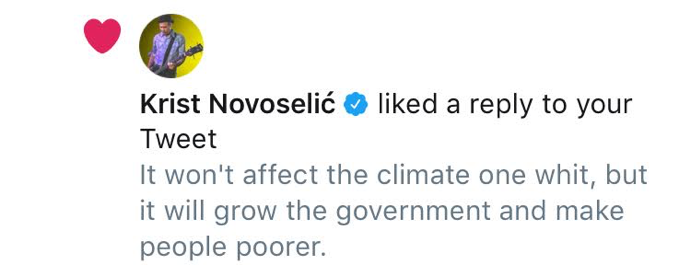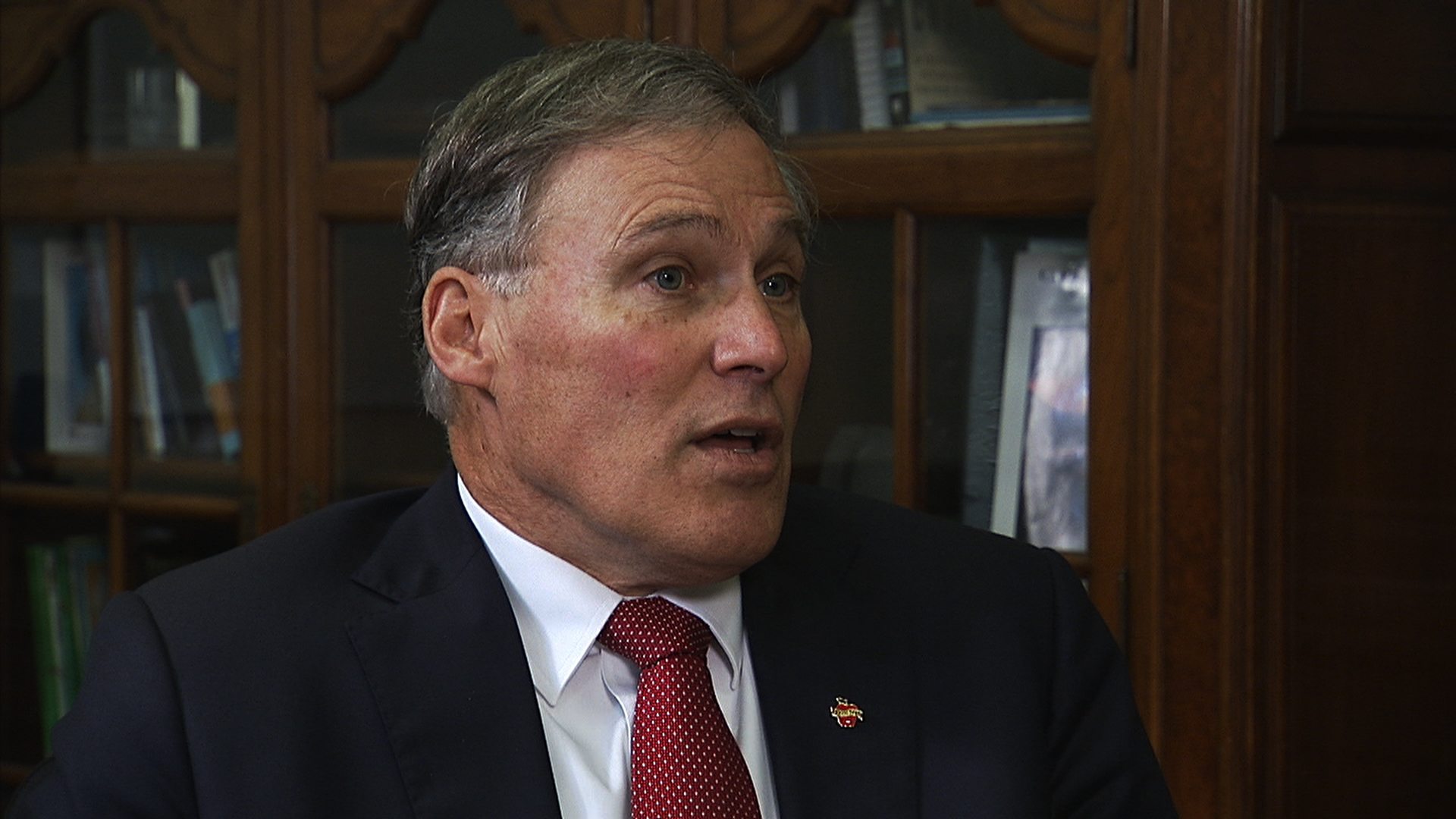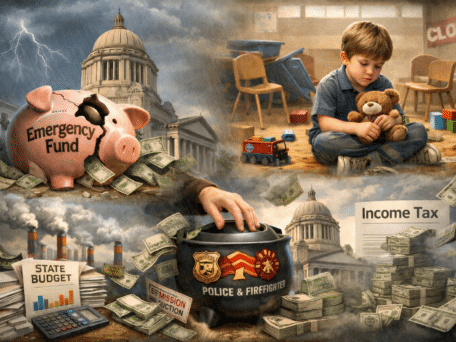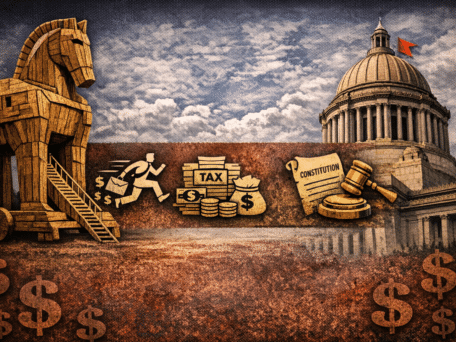If you listened to Gov. Jay Inslee, you’d think everybody in Washington enthusiastically backs his environmental agenda. Well, everyone except those pesky legislators, that is, who thwart him at every righteous turn.
By Inslee’s estimation, they’re the only roadblock to ending wildfires, cleaning Puget Sound, and driving cars powered by our own sense of self-satisfaction.
What Inslee never seems to mention when throwing shade at those darn legislators (something he did as recently as yesterday) is that Democrats run both chambers of the Legislature. He also fails to mention that his carbon tax plans have never even been brought to a vote in either of those Democrat-controlled bodies.
If “we’re the last generation that can do anything about” climate change, as Inslee likes to say, he’s done a terrible job of convincing his own party of that.
It’s unclear why Inslee thinks that his agenda is any more popular with the public. Voters, after all, handily defeated a carbon tax initiative in 2016 that was revenue-neutral. He thinks they’re now much more excited about a tax-raising carbon tax? (Oh, wait, it’s a fee. We forgot.)
We doubt higher taxes have become much more popular in the past two years. And if oil prices remain up, that just makes it all the more unlikely voters will want to make their trips to the pump more expensive.
Some groups point out that regressive carbon taxes are regressive
Some surprising voices are questioning the wisdom of making energy more expensive. Even some environmental groups – many, actually – question the tactic and worry about the impact on lower-income groups.
At the national level, a broad coalition of environmental groups recently sent a letter to far-left congressmen complaining about their “The People’s Budget.” This is not the Prius-driving wine-and-brie-fundraisers crowd. They want carbon taxes removed from the proposal in part because of its impact on the poor.
The coalition wrote that including a carbon tax would make it impossible “for some groups representing environmental justice communities” to support the Progressive Caucus’ budget. The groups used terms including “inequitable, discriminatory, ineffective and ultimately regressive” to describe carbon taxes.
Rebates for the poor don’t work, but I-1631 doesn’t offer them anyway
The groups directly attacked the idea that spending a portion of carbon tax proceeds on lower-income groups will somehow make those taxpayers whole. They wrote:
“Carbon taxes would be highly regressive, irrespective of the proposed unworkable rebate schemes. Lower-income families dedicate a larger proportion of their income on energy, so a carbon tax hits economically struggling family the hardest. These households are already forced to make difficult financial choices between food and rent, and medicines and education.”
Past carbon tax proposals included spending and/or rebates to help lower-income Washingtonians pay for their higher energy costs. Because Initiative 1631’s carbon tax is branded a “fee” instead, that was not legally an option.
So it is certainly true that the carbon tax on the ballot this year is going to hit poor families hardest. This is the path I-1631’s authors chose.
Closer to home, even Nirvana bassist Krist Novoselic seems skeptical:

Novoselic might be a celebrity and on the left, but he’s no vapid Hollywood liberal. He puts thought into political positions, and he’s piped in to Washington politics. If he’s skeptical too, well, I-1631 might really be in trouble at the ballot box.




